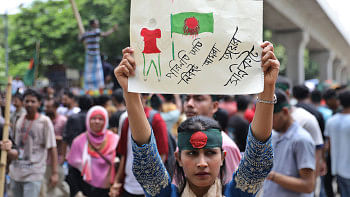Pragati’s car sales plunge 75% for govt austerity measures

The government is the major buyer of cars assembled by Pragati. The sales fell drastically as the government entities stopped purchasing cars.
The sale of vehicles of state-run automobile assembler Pragati Industries Limited has declined 75 per cent year-on-year in fiscal year 2022-23 owing to a halt in such purchases by the government.
Pragati sold only 177 vehicles in the year whereas 711 were sold in the preceding year.
According to a finance ministry circular of July 3, 2022, the government has ordered all government, semi-government and autonomous institutions to stop purchasing vehicles.
It is a part of austerity measures undertaken in the wake of global economic downturns following the pandemic and Russia-Ukraine war.
According to the circular, no more than 50 per cent of government allocations for such entities can be spent on entertainment, computers and related expenses.
"The government is the major buyer of cars assembled by Pragati. The sales reduced drastically as the government entities stopped purchasing cars," said Md Abul Kalam Azad, managing director (acting).
"Against this backdrop, profits declined to around Tk 4.5 crore in the last fiscal year from Tk 34.80 crore in preceding fiscal year," he said, adding, "We made a profit although our sales declined significantly."
Pragati assembles Pajero sport and double cabin pickup of Japanese Mitsubishi brand and buses of Indian Tata.
Private organisations and individual customers can also purchase vehicles from Pragati, said Azad.
Pragati provides brand new cars and their prices are lower than ones imported whole, he claimed.
The company also cannot raise prices all of a sudden without government approval although production costs have been increasing in tune with hikes in the price of the dollar, he said.
The story of the company dates back to 1966, when Gandhara Industries Ltd was established in Barabkunda of Chattogram with technical support from General Motors of the UK as a private company for the production of cars.
After Bangladesh won independence, the company was nationalised in 1972, named Pragati Industries Limited and placed under the control of the Bangladesh Steel and Engineering Corporation (BSEC).
Pragati, the only public car assembling company in Bangladesh, started its initial journey by assembling buses and trucks of England's Bedford Company.
Amidst a crisis in the transport sector of the then war-torn Bangladesh, the company made an important contribution to the development of the road transport system by importing superior buses and Bedford trucks from England on an urgent basis.
Later, facilities for working with completely knocked down (CKD) units were set up and various brands of cars marketed from India, China, Korea and Japan.
Azad said they have a plan to assemble Mitsubishi sedans of 1.2 litre to 1.6 litre capacity for regular customers.
Pragati's target customers were only high government officials but the decision to assemble sedans was taken considering that the growing economy and affluent section of society, he said.
"We will expand necessary setups for assembling sedans with technical help of MMC, Japan. We reached consensus with the MMC regarding establishment of a CKD setup in May this year," he said.
"To implement this with approval of Prime Minister Sheikh Hasina, we sent our detailed plan to the MMC last week," he said.
He believes customers would get brand new "Made in Bangladesh" sedans in the near future at reasonable prices.

 For all latest news, follow The Daily Star's Google News channel.
For all latest news, follow The Daily Star's Google News channel. 



Comments